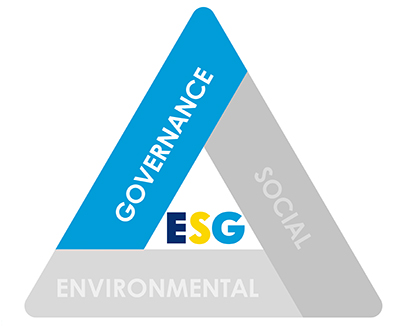The Case for Strong Governance in Supply Chains

Historically, Environmental, Social, and Governance (ESG) principles were often viewed as a compliance requirement—a necessary but non-strategic aspect of business operations.
This perception has shifted dramatically. ESG has become a pivotal element influencing corporate strategies, operational practices and stakeholder expectations.
The regulatory landscape is evolving rapidly, as governments and international bodies introduce stricter regulations to enforce sustainable practices across industries. Stakeholder expectations are also intensifying, as investors, companies, employees and communities increasingly demand that companies take meaningful action.
For companies looking to operate globally, compliance with regulations is no longer optional. Failure to do so can result in significant financial penalties, reputational damage and operational disruptions.
Why Governance is Your Competitive Edge
How can your organization use governance to secure long-term success and be resilient in this rapidly changing global environment?
In manufacturing, resource-intensive processes and global supply chains present unique challenges. Integrating governance frameworks into core business strategies is not only about meeting regulatory demands but also about harnessing opportunities to:
Customers are factoring ESG into purchasing decisions, demanding transparency and sustainable practices. Investors are placing greater emphasis on ESG factors when making investment decisions, recognizing that companies with strong performance in these areas are likely to be more resilient and profitable in the long term.
If your organization is able to successfully navigate this evolving landscape and proactively address governance, you will be well-positioned to enhance competitiveness, mitigate risks and capitalize on emerging opportunities.
Strengthening Trust through Transparency
Governance risks in the manufacturing supply chain are deeply intertwined with ethical sourcing, anti-corruption, regulatory compliance and transparency. A commitment to these areas is crucial for maintaining stakeholder trust and long-term supply chain sustainability.
As regulations evolve and stakeholder demands for transparency grow, companies must ensure their materials and products adhere to stringent standards of environmental sustainability, fair labor practices and human rights. Non-compliance can result in legal penalties, contract losses, reputational damage and loss of market access.
Companies can address these challenges by:
- Implementing advanced supply chain management systems
- Enhancing data analytics capabilities
- Adopting artificial intelligence and blockchain technology for improved traceability and transparency
By 2025, we expect such technologies to be widely adopted across various industries, enabling more efficient and sustainable supply chain practices.
Enhanced transparency in the supply chain has many benefits:
- Strengthens risk management by revealing key dependencies and bottlenecks
- Allows executives to make strategic adjustments to protect against external disruptions
- Reduces reputational risks and builds stakeholder trust
By proactively managing governance risks, your organization can mitigate potential disruptions and position itself as a leader in the global market. You can build a supply chain that is adaptable, sustainable and poised for long-term success.
Governance Strategies for 2025 and Beyond
As we enter a new year, the landscape of governance in manufacturing continues to evolve. The year 2025 and beyond will likely bring heightened expectations from stakeholders, more stringent regulations and increased scrutiny of supply chain practices.
There are two critical aspects that will shape the future of sustainable business practices: anticipating regulatory changes and identifying future trends in supply chain management.
Here are two important examples:
- By 2025, it’s highly probable that the Securities and Exchange Commision (SEC) in the U.S. will have fully implemented its proposed climate-related disclosure rules. These rules require public companies to provide detailed information about their climate-related risks, greenhouse gas emissions and net-zero transition plans.
- The European Union’s Corporate Sustainability Reporting Directive (CSRD) will be fully implemented by 2025. This directive will require about 50,000 companies operating in the EU to disclose detailed information on their environmental and social impacts.
Supply chain and manufacturing experts will have to anticipate similar regulations in other regions around the globe and prepare their organizations accordingly.
Future-Proof Your Supply Chain Governance
A forward-thinking approach is essential—not just to navigate challenges but to leverage them as opportunities for growth and differentiation.
Companies that adopt robust governance practices can build resilience and adaptability, as well as gain improved access to capital, enhanced talent attraction and retention, and stronger customer loyalty. A strong governance framework drives competitive advantage and provides a significant edge in securing investors, many of whom are making ESG performance a key criterion in investment decisions.
As we look toward 2025 and beyond, the imperative is clear. To secure long-term success, businesses need to adopt a proactive approach to governance in sustainable supply chain management.
To explore forward-thinking strategies you can apply to your organization, download our white paper Navigating ESG Risks and Opportunities in the Manufacturing Supply Chain: Key Strategies for 2025 and Beyond.